Interview with Sarah Blake, Author of "Naamah"
JWA sat down with author Sarah Blake to discuss Naamah, one of JWA’s 2019-2020 Book Club picks. Blake's retelling of the biblical story of the great flood focuses not on Noah, but on his wife. This feminist retelling dives into the matriarch's head and explores the burdens, joys, and sorrows of watching the world end and then begin anew again.
What inspired you to write a retelling of the Noah’s Ark story from Naamah’s perspective? Why this biblical story?
I am, still, terrified of the idea of fourteen months on the ark. Even if it were a luxury cruise, I’m not sure how I’d handle fourteen months in the middle of a flood that I couldn’t see an end to, geographically and temporally. But add to it the responsibility of one’s family, the care of all the animals of the world, and the horrible conditions of a pitch-covered wooden ark you built with your own hands… I know I wouldn’t be able to handle that. I could hardly take care of a few fish in my son’s fish tank.
So yes, the premise terrifies me, and the position of the family seems hopeless. But they make it through. In 2016, I was feeling incredibly hopeless. I needed to align myself with a woman who made it through. I needed to know how she did it. Noah’s wife was that woman for me. And reading the story in the Torah—it’s so short! Even in the Midrash, we don’t get too much more of the story. The world, her world, felt open to me, to whatever I might imagine.
Naamah begins with the titular character, her husband, Noah, and their children already on the ark, weeks into their watery journey. Why did you decide to structure the novel this way, beginning in medias res (in the middle of things)?
I started at the peak of hopelessness in the story. The building of the ark, the ushering of the animals, the days of rain—all of that time must have been filled with purpose and fear. But after the rush of adrenaline and the push for survival, once habits had been established, routine, mundanity even, had settled in, can you even imagine? And they have no idea when they will be free of it. They have no idea what new problem awaits them each day, and if they’ll be able to resolve it, if they’re even capable of some version of success in creating this new world, all under the eye of a God that they’ve just learned is capable of incredible violence. If it hadn’t already been written, I’m not sure I’d ever be able to place a character in such a desperate position. But since it had been written, I had to get her out.
I was struck by how internal this novel is. So much of the action within the book happens inside Naamah’s head: in her thoughts, memories, and dreams. This is quite a contrast from the original Bible story; Naamah doesn’t speak and is simply called “Noah’s wife.” Why was it important to you to give Naamah not just a voice, but a rich interior life?
I think everyone’s story takes place mostly in their head. Our interior lives are so strange and unique and full. There are always disparities between what we think and what we say, what we think and what we do, what we want to dream of and what we actually dream. Our interior lives are baffling. I wanted to capture Naamah as a dazzlingly complicated person, as I think every person is. I wanted to give her everything.
Throughout the book, Naamah experiences episodes of temporary, selective blindness that only impact her ability to see the animals aboard the ark. Can you speak to the significance of vision within the novel?
I’ve always been intrigued by the power of the mind and the steps our minds can take to shield us from trauma—be it blocking memories, splitting personalities, or other dissociative measures. I thought Naamah’s mind would try to protect her from the ongoing high-level of anxiety she was experiencing, isolated on the ark, having witnessed the drowning of everyone she knew and loved outside her nuclear family, and caring for and living near all sorts of animals, even wildly dangerous ones. It’s an illogical fix to the problem. Her selective blindness doesn’t free her from what has to be done and, in fact, puts her in more danger. But such is the mind, doing what it can in an impossible situation.
At one point, Naamah remarks: “Women are so distrustful of [God] that they might never bear children for the new world.” This sentiment is so relevant for many young women making reproductive decisions now as climate crises increase. Were you thinking of today’s climate anxiety when you wrote Naamah?
I wasn’t. I was thinking of gun violence, police violence, systemic racism, the prison industrial complex, and the dangerous lies/anecdotal b.s. surrounding social programs that make people wary of and even hateful towards welfare, food stamps, and universal healthcare. Don’t get me wrong—I’m scared of climate change. (What a euphemistic term we’ve come up with for it.) I’m scared of catastrophic climatic instability that will lead to tens of thousands of deaths and possibly the end of the human race. But I think there’s more hope of seeing sweeping environmental legislation that could save us before seeing closed loopholes in gun sales in America. I don’t want one more than the other. I want both.
God and other divine beings make appearances in this book. Can you describe your process of writing God, creating God, within the world of this story?
It was so difficult! I knew I had to do it. If I’d gone through the whole book and God never spoke, I knew I’d feel like a coward of a writer. This story is set at a time when God talked. He talked to Noah, He talked to Moses, He talked to Abraham. He took different forms and He spoke. But writing towards those final scenes was hard. I had to muster such bravery. I think that’s why I began with the Metatron. He was the voice of the Lord but he also was himself, and I could approach God through him more slowly, gaining confidence in him and his character before getting to God Himself. In thinking about how God would differ from the Metatron, from the angel, from Naamah, from every other character in the book, I found Him more precisely. I wanted to capture how God felt an immense responsibility towards the world and was still negotiating His involvement with it, how He was having a similar sort of crisis to Naamah’s, but with perhaps a different relationship to ethics and empathy, from his God-perspective rather than a human one.
You posted on Instagram about how Naamah “queers the canon.” Tell us more about this!
I love thinking about every character in the Bible, who is not explicitly depicted as cis-hetero, as queer. There are so many characters left at the periphery of the stories, as Naamah was. If they’re all queer, I feel much better about our past. I think it’s got to be a much more honest portrayal of our past. We all have such complicated relationships with identity, gender, and sexuality. Everything’s a spectrum—so we’re the intersection of a zillion spectrums and come up with this one particular place where we land and feel like our comfortable selves. There’s no way our history contains more bland people, with less complicated identities, and less spectrums of feeling and thought. That’s absurd. Our past is so changed by who wrote it down, and when, and who translated it, and when. We have to rely more on our imagination than the written word. We have to use context to build up the more likely story. I’m so excited to see the ways our canon changes as we embrace the voices we overlooked.
Naamah’s sexuality plays a huge role in this story—not just her sexual preferences, but her desires and the act of having sex. Why was it important for you to vividly depict a biblical matriarch’s sexual and romantic life in this book?
I think our physical experience is as valid and important as our thoughts and feelings. I missed having powerful representations of vaginal pleasure in the literature I read growing up. This is the book I wish I had as I began to understand sex and my body.
What is one thing you hope readers take away from Naamah?
Joy.

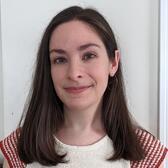
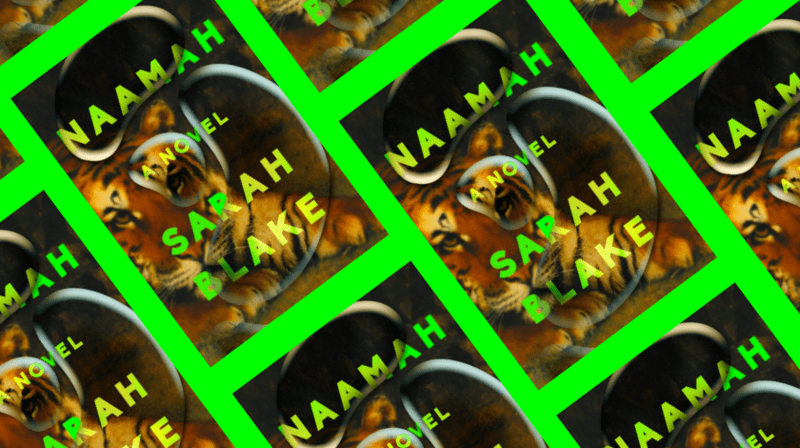
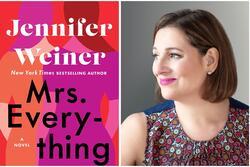
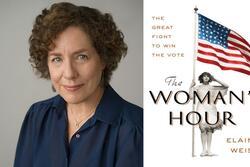
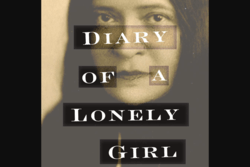


I had to study Naamah for Women's Ministry. I was trying to find out every thing her.
I did not like the book, Naamah, by Sarah Blake at all.